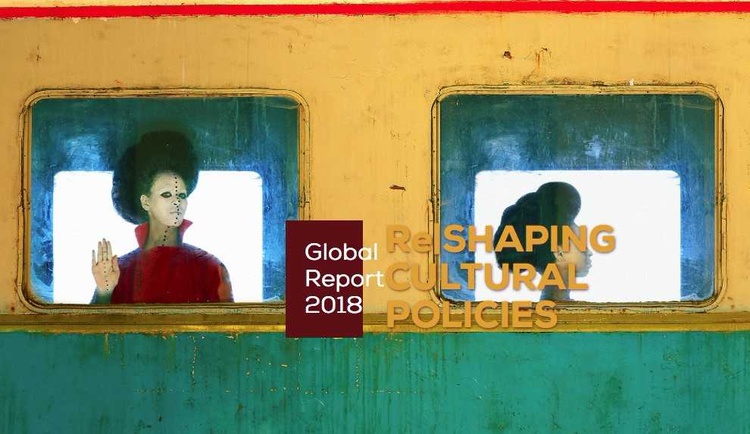
UNESCO: Innovative cultural policies have a positive impact on cultural governance
On 14 December, 2017 at the HQ of UNESCO in Paris the 2018 Global Report, Re|Shaping Cultural Policies was launched during the 11th session of the Intergovernmental Committee of the Convention on the Protection and Promotion of the Diversity of Cultural Expressions. The Report analyses trends and issues concerning the development of cultural policies and monitors progress in the implementation of the Convention on the Protection and Promotion of the Diversity of Cultural Expression adopted in 2005. The Report also highlights the Mass Media Policy Guidelines of Latvia 2016-2020 as an example of good practices. During the meeting a work plan for 2018-2019 was established including activities to implement the operational guidelines on the diversity of cultural expressions in the digital age.
As pointed out by Audrey Azoulay, director-general of UNESCO: “This Report demonstrates that innovative cultural policies implemented at regional and local levels have a positive impact on the whole of cultural governance. It highlights the strategic frameworks best adapted to the digital environment, the emergence of exchange platforms and the dynamism of artistic incubators in the global South. It also points to the persistent inequalities and underrepresentation of women in the culture sector, trade barriers on cultural goods and services from the global South and the vulnerability of artists at risk. By providing yet unpublished statistics and data in these areas, this Report is essential for developing and implementing public policies that are adapted to the evolving needs of the culture sector.”
Altogether the Report tracks progress on the following four main goals related to the Convention: support sustainable systems of governance for culture; achieve a balanced flow of cultural goods and services and increase mobility of artists and cultural professionals; integrate culture in sustainable development frameworks; promote human rights and fundamental freedoms. The Report examines how the 2005 Convention (binding for 146 countries in the world, including Latvia) has inspired policy change at the global and country level in ten areas of monitoring. It puts forward a set of policy recommendations for the future and produces new evidence to inform cultural policy making and advance creativity for development.
While taking part in the 11th session of the Intergovernmental Committee of the Convention on the Protection and Promotion of the Diversity of Cultural Expressions, the representative of the Republic of Latvia, rector of the Latvian Academy of Culture Rūta Muktupāvela indicated that Latvia emphasizes the role of culture in the formation of civil society, because culture in its diversity of expression not only positively affects the sustainable development, equality and inclusion of society, but also contributes to the economic growth of the country: “Without culture there would be no civil society. In this context, Latvia can already be proud of its activities, for example, there is the initiative of creative week “Radi!”(Create!). This and many more examples reveal the importance of creativity, innovative entrepreneurship and business management for the economic growth of the country and encourage the public interest in the development of the sector of creative and cultural industries as a whole.”
On 15 June, The republic of Latvia was elected for the first time to the UNESCO Intergovernmental Committee for the Protection and Promotion of the Diversity of Cultural Expressions for the period from 2017 to 2021. The representative of Latvia on the committee is Professor Rūta Muktupāvela, Rector of the Academy of Culture. The UNESCO Intergovernmental Committee for the Protection and Promotion of the Diversity of Cultural Expressions was established in 2005 and is composed of representatives of 24 States Parties to the Convention. The Committee aims at raising awareness among international community of the value of diverse cultural goods and services, promoting cooperation with developing countries and ensuring the protection of the diversity of cultural expressions.
The electronic version of the Report can be downloaded here: http://unesdoc.unesco.org/images/0026/002605/260592e.pdf
